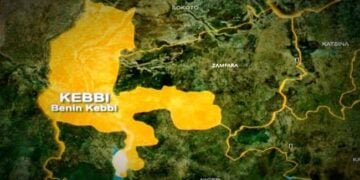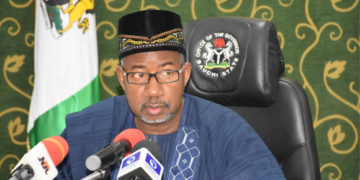The chairman of BUA Group, said there is need to add local value to resources to avoid global shocks.
BUA Group, has invested in a vertically integrated sugar facility in Nigeria’s Kwara state. The $400 million project includes a 20,000-hectare sugar plantation, a sugar milling plant, a sugar refinery, an ethanol plant and a 35 MW power plant fuelled by bagasse, a sugar cane residue.
Sugar may not get the attention of other crops, even though it is frequently in the top five crops traded globally by value. Africa has some important producers – notably in Southern Africa such as Eswatini and Mozambique, but countries such as Nigeria, Egypt and Algeria still import more than they consume. In Nigeria imports account for 90 per cent of consumption.
Rabiu, said sugar is one of many low-hanging fruits when it comes to the agricultural opportunity and to working within the country’s import substitution strategy, saying BUA group, one of the most important diversified conglomerates in Nigeria, is already the fourth largest listed company in Nigeria by market capitalisation, operating in foods, cement, mining and infrastructure, and now agricultural production and processing.
He noted that the Group made its fortune in cement and is applying the same logic to agriculture: tap into what your country produces and take advantage of the country’s resources and competitive advantages.
He said localised production is key, pointing out that, the conflict between Russia and Ukraine has once again highlighted Africa’s vulnerabilities. “Countries that produce what they consume have been better able to manage their inflationary risk,” he said.
According to BUA chairman, last year we were paying $250 a tonne to import wheat. Today that has increased to $600. So, if you are importing one million tonnes a year, that is adding close to $30 million per month to your cost base. We cannot pass this cost to the consumer, they just would not pay it, so yes, it is a cause for concern.
“The beauty of the sugar refinery is that in terms of agriculture it is the way to go. Our plantation is going to be completed by next year. It is a 20,000-hectare fully integrated four-in-one plantation with sugar mill, sugar refinery, ethanol and power plant. Once we complete it, it should reduce Nigeria’s import bill by $150 million a year.
“And we should be creating 6,000 direct jobs. It is an exciting project. Even the power we produce to run the mill and refinery comes from a bi-product of the sugar cane. Agriculture is turning out to be a game-changer. And Nigeria sits on almost 48 million hectares of arable land between Kwara state, Niger state and Kogi state; flat, arable, fertile land.”
He added that for the time being, sugar will be sold in the domestic market, saying with a population of 200 million, satiating local demand makes business sense and selling to other countries is still tough.
Despite the implementation of the African Continental Free Trade Area, Rabiu said there are still challenges to cross-border trade as governments make a substantial chunk of revenues from import duties.





